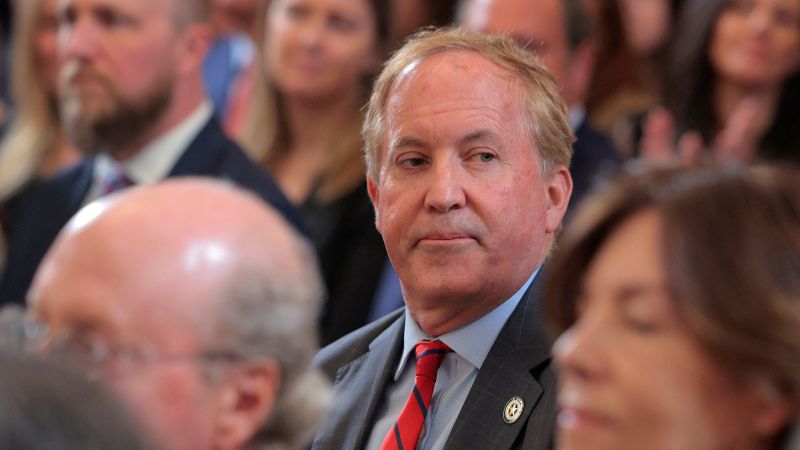In the high-stakes world of American politics, endorsements can hold immense power, especially when it comes to pivotal primary races. This situation is particularly evident in Texas, where Attorney General Ken Paxton is striving to garner the support of former President Donald Trump as he vying against incumbent Republican Senator John Cornyn. The story recently unfolded when Paxton traveled nearly 4,500 miles from Texas to Turnberry, Scotland, specifically to seek an endorsement from Trump amidst his contentious primary battle.
Paxton’s trip took place on a last Saturday in July, where he found himself at Trump Turnberry, the luxurious golf resort owned by the former president. According to sources familiar with the encounter, although Trump and Paxton did not play a round of golf together, the two engaged in a private conversation for several minutes regarding the ongoing Texas Senate race. This meeting reflects the lengths to which Paxton has gone in pursuit of Trump’s endorsement, an endorsement he believes could decisively shift the dynamics of his campaign against Cornyn.
Initially, the White House denied that the interaction took place, but as inquiries continued, there was no further comment from officials on the matter. Despite this, aides close to Trump have indicated that he is meticulously observing the Texas Senate race and has signaled an intention to adopt a more pragmatic approach to endorsements than during his presidency.
Paxton, who has garnered significant support from Trump’s base, is aiming to capitalize on that loyalty. Earlier in the summer, his associated political action committee even ran a television advertisement in Palm Beach, Florida—visible from Trump’s Mar-a-Lago estate—rather than focusing on Texas voters. This strategic move underscores the significance Paxton places on Trump’s approval.
Polls indicate that while Paxton holds a strong lead over Cornyn ahead of their primary scheduled for March, he still faces challenges, particularly in fundraising. Cornyn enjoys robust backing from Senate leadership, and he typically outpaces Paxton in financial resources, creating a challenging environment for the Attorney General as he aims to compete.
Conversations with individuals close to Paxton reveal that he believes earning Trump’s endorsement could effectively cripple Cornyn’s chances at reelection. Paxton maintains a personal relationship with Donald Trump Jr., who was also present at the golf course during Paxton’s visit. If Paxton were to secure the Republican nomination, it is expected that Democrats would increase their efforts in a potentially competitive seat in Texas, which has historically leaned Republican.
Meanwhile, national Republicans, including Senate Majority Leader John Thune, continue to rally behind Cornyn, emphasizing his ability to secure both the primary and general election while retaining Senate control for the GOP. Trump, however, has maintained a neutral stance in the contest, a point of contention as Senate GOP leaders push for a united front in support of Cornyn.
This developing saga has turned into a contentious primary race, with Cornyn calling Paxton’s campaign a “con man’s vanity project” while also stressing that the dominant threat is the potential loss of Trump’s agenda should Paxton prevail. Cornyn proudly points to his voting record, indicating how closely he has aligned with the former president, further complicating the narrative of loyalty among candidates.
Ultimately, though Paxton may have shared ideological alignments with Trump, a Republican strategist mentioned that any decision about an endorsement will depend on whom Trump believes can best fend off potential Democratic gains, placing winning as the top priority in the president’s mindset.
As we look to the future of the Texas Senate race, the dynamics between Paxton and Cornyn could very well determine not just the fate of two individuals in the Republican party, but also the greater political landscape as the midterm elections approach. The interplay of endorsements, canvassing for support, and public sentiment will be critical as both candidates navigate this challenging primary contest.











